- Home
- Kelley Armstrong
Wherever She Goes (ARC) Page 7
Wherever She Goes (ARC) Read online
Page 7
“I just want—”
“And I don’t give a damn. You want to know the real reason why I don’t take money from you? Because paying for this place means it’s mine. All mine. So if I tell you to get your ass out, you are going to turn around and do it. Now.”
He hesitates. Then he stalks out, the door slapping shut behind him.
Now I’m angry. No, I am furious, in a way I haven’t been for years. A way I haven’t allowed myself to be. At last, I have a target for my bottled-up rage.
Paul.
He didn’t give me hell for being on the news. Didn’t storm over here to accuse me of publicly humiliating him. I think that might be better. Then I could have snarled back that this wasn’t about him.
What he did is worse. It’s condescending crap. It’s Paul thinking his wife has lost her mind. Poor, poor Aubrey. She’s hallucinating missing children because she’s sad that she doesn’t have another baby yet.
Screw you, Paul. I saw a boy kidnapped. Any doubt I had evaporated the moment I saw his mother’s photo. That is the woman. He was the boy. He was taken.
And I’m going to prove it.
I have the photo. The one the police are very clearly not interested in. So it’s time to show them what I can do with it. I’m going to get numbers on that plate, and then I’m going to find that SUV, if it means hacking into the damned DMV to do it.
Yeah . . .
That doesn’t turn out quite as well as I hope. I can’t get any characters from the plate even when I download an illegal copy of the best enhancement software I know. Whoever obscured that plate knew what they were doing, and the mud is caked on thick enough that all I can make out is a few straight lines.
It’s a setback, but not a dead end. I’m too pissed off to let it be a dead end.
I met the dead woman. However shallow our conversation might have been, there is a clue there. I’m sure of it. So I meditate, clearing my mind to focus on our conversation, tugging wispy threads from memory and writing them down. Then I return to meditating and teasing out more threads.
It takes two hours to recall our brief chat, one that wasn’t even a conversation, but simply a series of exchanges punctuating a lesson on cartwheels.
“A librarian,” she laughs when I tell her what I do for a living. “I did not picture you as a librarian. But I suppose that proves it’s been a long time since I set foot in a library. I really should take my son sometime.”
“You should. We have great early-reader programs.”
“That’d be good. I’ve been reading with him at night.”
My son. Him. She never gave me a name. Not for the boy, not for herself.
“Do they have morning programs?” she asks. “I work at a pizza place. We don’t open until noon so I never work mornings.”
A pizza place. That’s all I have. She works at a pizza place that opens at noon.
There are thirteen pizza parlors in Oxford. Only five open at noon, and two are chains. If she worked at one of those, I’d think she’d say, “I work at Domino’s.”
I’ll start with non-chain pizza parlors.
I rise from my laptop . . . and see the clock on the microwave. It’s after eleven at night, and I won’t get far questioning sleepy employees.
This can wait until tomorrow.
It has to.
* * *
I wake the next morning to a voice mail from Paul.
“Aubrey, it’s, uh, me.”
As if I couldn’t tell by the phone number.
“I realize how my remarks yesterday could have been misconstrued.”
Yeah, pretty sure you knew exactly what you were saying.
“I don’t doubt that you saw a child pulled into a van.”
You just think, like Officer Cooper, that I overreacted to a frustrated parent hauling their kid from the playground.
“I’d like to discuss this. If there’s any possibility that the police are in error here, I will help you get through to them.”
Sure, you’ll help . . . if I’m actually right, which you seriously doubt. Let’s talk, and you can convince me that I’ve made a mistake.
“Call me, Bree. Please.”
I hit Delete and get ready for work.
* * *
Ingrid knows about the video clip. So does Nancy, the other librarian on duty. One of them saw the live coverage and told the other. They don’t say a word about it to me. Which means I’m robbed of the opportunity to explain. They just keep sneaking looks my way.
Those looks aren’t disapproving. Again, like with Paul, I almost wish that they were. I can deal with disapproval. Instead, their looks ooze trepidation. Like Paul, they question my mental stability.
By eleven, I’m ready to confront Ingrid. March her into the staff room and have it out.
I know you saw that news clip. Let me give my side of the story.
Let me show you I am fine.
I’m considering how to do that without being confrontational, when a voice says, “Aubrey?”
I turn with my “How may I help you?” smile. I don’t recognize the guy. He’s about my age, good-looking in a ten-years-post-frat way. Really not my taste in men, but he fixes me with a blazing smile that says he’s pretty damned sure he’s every woman’s taste in men.
“Hey, there,” he says.
“May I help you?”
Another toothy grin. “I certainly hope so.”
Not today, asshole. Come back tomorrow, and maybe I’ll be ready for your crap, with an empty smile and then, “Oh, I think you want to speak to Nancy about that.”
Nancy is nearing retirement age, and on my first day, she said that if I ever had a customer being too friendly, I could pass him off to her. I’d laughed at the time, certain that no one hits on librarians. I’d been wrong. I have appreciated Nancy’s kindness and help in the past, which makes her wary looks today so much harder to handle.
Right now, though, I am in no mood for this crap. The old Aubrey rises as I stand, stone-faced, waiting for the guy to say something productive.
“Has anyone ever told you that you don’t look like a librarian?” he says.
“I’m sure every librarian has been told—repeatedly—that she does not look like a librarian. Or, at least, not like the image of a librarian held by people who don’t frequent libraries.”
His smile falters at that. He opens his mouth. Shuts it. Straightens. And I think he’s actually going to abort course. But after a moment, he leans over the counter.
“You’re the girl from the news, right?”
“I stopped being a ‘girl’ about ten years ago. But if you’re asking whether I was briefly on the news yesterday, yes, I was. I didn’t realize I was talking to a reporter. I was just there to make a statement.”
“You don’t like reporters?”
He smiles when he says it, casual, overly charming, gaze never leaving mine. But the problem with trying to flirt while holding eye contact? You give yourself away in little things. Eyelids lowering or rising. Pupils dilating or contracting, just for a second.
“I like reporters just fine,” I say. “Except when they’re trying to get a story by pretending they aren’t reporters.” I lean in to whisper, “Don’t you hate that?”
He blinks.
“Go away,” I say. “There’s no story here.”
I walk toward the other side of the circulation desk. The guy skirts the exterior, following me.
“Can’t blame a guy for trying, right?” He winks, sliding back into frat-boy mode. “You said you were trying to give a statement. The police weren’t listening. That doesn’t seem fair. You’re obviously a smart woman. Look where you work.” He waves around the library. “And you saw right through my patter. I don’t think anyone has ever—”
“Cut the crap,” I say.
Ingrid looks over fast enough to inflict whiplash.
“I made my statement to the police,” I say. “I trust that they will handle it. I don’t want to impede
their investigation, so I have nothing more to say on the matter.”
“They’re ignoring you. You do know that, right?”
“Their priority is identifying a murdered woman. As soon as they do, they’ll discover she has a child, who is missing.”
“Can I quote you on that?”
“No, but you can quote me on this.”
I start to raise my middle finger. I stop myself, but Ingrid still lets out a chirp of alarm and scampers over.
“I am so sorry, sir. Ms. Finch has been under a great deal of stress.”
“He’s a reporter,” I say. “One who doesn’t understand that I am at work.”
“What time do you get off?” he says. “We can grab coffee. Maybe a drink.”
I snort.
“Aubrey,” Ingrid whispers. To the reporter, she warbles something about stress again as she shunts me off to the staff room.
“You cannot speak like that in front of patrons,” she says as she closes the door.
“I’m sorry,” I say.
She hovers, as if waiting for an argument.
When I don’t give it, she nods slowly and says, “I’m concerned. That’s not like you, Aubrey.”
Actually, it’s totally like me. It’s the me I abandoned when I met Paul. I’m not saying I miss that girl. In some ways, I feel like her older sister, rolling her eyes and saying, “Seriously?” Yet the other part of that girl, the part that had no problem telling a reporter where to shove his shtick? Yeah, I kinda miss her.
“You’re right,” I say. “I’m under a lot of stress. About the news clip, I’d like to explain—”
“No need.”
“I’d really like—”
“Why don’t you take the rest of the day off? It’s slow today.” She pats my shoulder, but there’s a hesitancy to it, like patting a Rottweiler.
“I’m fine,” I say. “I—”
“Really. I insist. Take the day off and rest. We’ll see you tomorrow.”
I have an unexpected half day off. I’m trying not to freak out about that. In fact, I’m trying to tell myself it’s exactly what I need. The more time I have to investigate, the faster I can vindicate myself.
Of course, the first thing I do is go online, in hopes I’ve already been vindicated. But there’s no update on the case, nothing to indicate the murdered woman has been identified.
Time to get to work. When I left this morning, I took care with my outfit. Dress pants, a white blouse, a dark blazer. Hair pulled back in a sleek ponytail. Minimal makeup. I leave my contacts out and wear my black-rimmed glasses.
Does the mirror show a woman who could pass for a police detective or federal agent? Yes, and that’s no accident. I won’t tell anyone I’m a cop, but if they draw that conclusion, that’s not my fault. Or so I tell myself. The truth is that I’m no longer the pissed-at-the-world twenty-year-old who pulls crap like that and doesn’t give a damn. I know better.
It’s 12:10 when I reach the first pizza place on my list. No one there has seen the woman in the photo. On to the next one. I hesitate in the parking lot. Pop’s Pizzeria is a hole-in-the-wall. A tiny take-out parlor in a tiny strip mall. The sign actually reads POPS PIZZERIA. It’s that kind of sign, the sort you get done by a friend who has a buzz saw and a few cans of paint and a C in grade school English. It’s either going to have the most amazing pizza ever . . . or the worst. From the lack of cars out front, I’m betting the latter.
I go inside. The counter area is empty, of both customers and staff. When I call “Hello?” I hear voices in the back, speaking Italian. I call again. A door opens and a woman emerges, wiping flour-covered hands on an apron. A mix of yeast and tomato and oregano wafts out, and it smells amazing.
“Five minutes,” she says in heavily accented English. “It is ready in five minutes.”
“I’m not picking up an order,” I say.
“You make order?”
I smile. “I wasn’t planning to, but judging from that smell, I might.” I extend my hand. “Bree Stapleton. I’m trying to find a missing woman.”
I’m straddling a line, using my maiden name and not calling myself a police officer. I’m still nervous. Still not sure I can pull this off. But for the missing woman and her son, I’m going to try.
I continue. “We have reason to believe she worked at a pizza—”
“Kim.” Before I can speak, she opens the door into the back room and calls out in urgent, rapid-fire Italian.
A man walks out. He’s younger, maybe my age.
“Is Kim okay?” he asks.
I hesitate. I have no idea what police protocol would be in an actual murder investigation. But these people aren’t going to know either, and I’ll have better luck getting details if I admit there’s been a crime.
“I’m sorry,” I say. “I’m investigating a murder.”
I pause a moment, respect for the dead; then I open a manila folder and hold out the printed photo.
The man takes it, and his eyes shut for a second before he nods. “Yes, that’s Kim. She didn’t come in to work yesterday, and I’ve been calling. That isn’t like her. Mamma was worried. I said I’d stop by her place later.”
He bends in front of his mother and talks to her in Italian. She crosses herself and then folds her hands in her lap, her gaze down.
“I’m very sorry,” I say. “But I do thank you for identifying her. I also need to ask about her son.”
The man frowns. “Kim had a son?”
My heart thuds. “Evidently.”
“She never mentioned any kids. Did he live with his father?”
No. Please, no.
“I only know she had a little boy,” I say. “Four or five years old.”
The man frowns, turns to his mother, and says something. Her eyes widen, and she shakes her head vehemently.
“Kim did not have any children,” the woman says in English. “I would always tease her, saying she needed to find a nice young man and have babies. Perhaps this woman is not her.”
“That’s Kim, Mamma,” he son says softly.
“When was her last shift?” I ask.
“Monday. She works Fridays, Saturdays, and Mondays. Can I ask when she . . . ?”
“Tuesday.”
“And it was in the news?” He curses under his breath, and his mother berates him in Italian. He apologizes for the profanity and says, “I haven’t been paying attention to the news lately.” He gestures at the shop. “We only opened a few months ago, and Kim is—was—our only employee. I’ve been putting in twelve-hour shifts every day.”
“I understand. Would I be able to see her employment record? I need her current address.”
“Sure.” He starts heading for the back and then slows. When he turns, he stammers. “I-I’m not sure I have that. Here, I mean. Like I said, we’re new, and we haven’t quite caught up on paperwork.”
“I’m not with the IRS, sir. Whatever arrangement you had with Kim, I’m sure she planned to pay her income taxes.”
He nods. “Right. Yes. It was just . . . informal.”
“While a Social Security number would be useful, I’ll take anything. My only interest is in catching her killer.”
“Give the girl whatever you have, Francis,” the woman says.
“Of course, Mamma.”
Kim must be the dead woman. Her employers both ID’d her from the photo, and they haven’t heard from her since before the murder. But Kim doesn’t have a child.
So how can she be the young mother I met in the park?
Is there a chance the dead woman isn’t the person I met?
No. The young woman I met said she worked in a pizza parlor that opened at noon. Two people just identified the murdered woman in the surveillance photo as an employee in their pizza parlor, which opens at noon.
I must pursue this until either I solve this puzzle or I am somehow proven wrong. Even thinking that last part sets my heart racing, my breath coming short.
If I am wrong . .
.
If I am wrong, I’ve given Paul what he needs to paint me as an unstable mother. First, I start hallucinating kidnapped kids. Now, I’m pursuing my delusion even after I’ve learned that the dead woman didn’t seem to have a child.
I am risking the one thing that is most important to me—custody of my daughter—and for what? Even if I am right, is it worth the risk to help a stranger?
I should have stopped as soon as Cooper told me there was no missing child. That’s what other people would do. Normal people. If they even took the time to report what looked like an abduction, they’d have dropped it there. Duty done, let the police handle the rest. It’s none of their business.
I did report the kidnapping. I reported that the dead woman was the boy’s mother. Now I’ve learned that the dead woman wasn’t anyone’s mother. So drop it. Drop it and step away before I get into more trouble.
I should do that. But I can’t. I will always be that little girl trapped in a car with her dying mother, the girl who grew up knowing she might still have a mother if someone had stopped, if someone had even taken a moment to report seeing a wrecked car. I will always be the eighteen-year-old, rushing home to help her father when no one else would, arriving too late to stop him from taking his life.
No one helped my mother. No one helped my father. No one wanted to get involved. I cannot be that person. Ever. If there is any chance that a boy is out there, in trouble, and no one is searching for him, then I must be that one person. The person who cares. The person who gets involved.
Whatever the cost.
Kim’s employers gave me her address. Before I check it out, I place a call to the police station tip line.
“Hi, I’m phoning about the young woman found in the park. I’m sure I’ve seen her working at Pop’s Pizzeria over on the west side. I think her name’s Kimberly.”
It’s not perfect, but at this point, calling in under my own name is a surefire way to make sure no one follows up.
The address leads to an apartment building. A nicer one than mine, though hardly upscale. At least it has controlled entry. That would work better if I didn’t just need to stand outside fumbling in my purse for my “key” until a resident came out. He even held the door for me.

 The Calling
The Calling Darkest Powers Bonus Pack
Darkest Powers Bonus Pack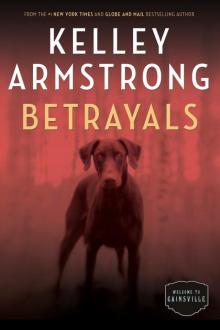 Betrayals
Betrayals Sea of Shadows
Sea of Shadows Rough Justice
Rough Justice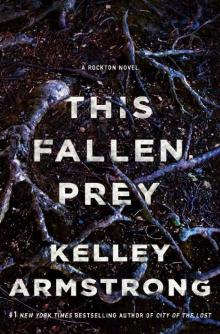 This Fallen Prey
This Fallen Prey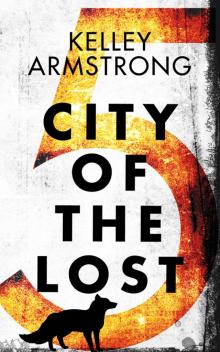 City of the Lost: Part Five
City of the Lost: Part Five Perfect Victim
Perfect Victim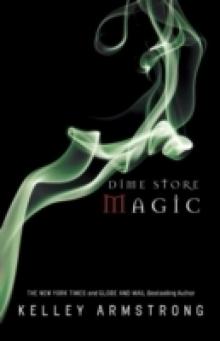 Dime Store Magic
Dime Store Magic Personal Demon
Personal Demon Haunted
Haunted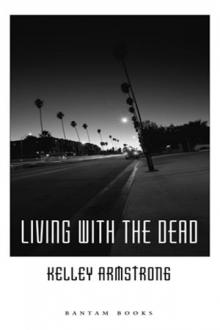 Living With the Dead
Living With the Dead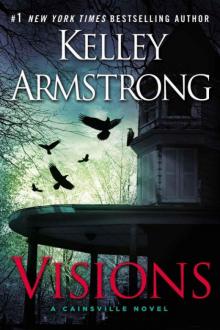 Visions
Visions The Summoning
The Summoning Broken
Broken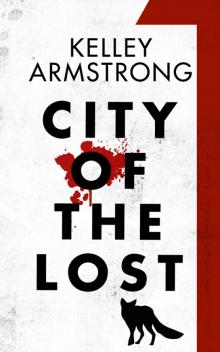 City of the Lost: Part One
City of the Lost: Part One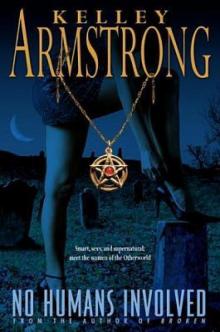 No Humans Involved
No Humans Involved The Awakening
The Awakening The Reckoning
The Reckoning The Gathering
The Gathering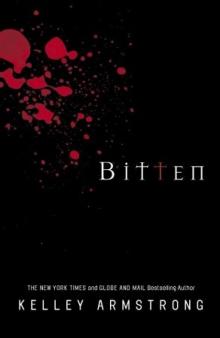 Bitten
Bitten Thirteen
Thirteen Gifted
Gifted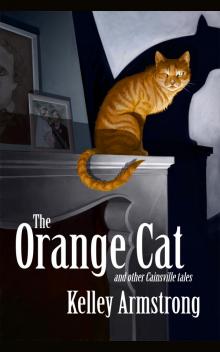 The Orange Cat and Other Cainsville Tales
The Orange Cat and Other Cainsville Tales Darkest Powers Bonus Pack 2
Darkest Powers Bonus Pack 2 Rituals
Rituals Waking the Witch
Waking the Witch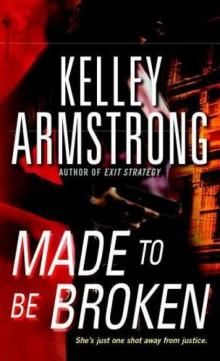 Made to Be Broken
Made to Be Broken Lost Souls
Lost Souls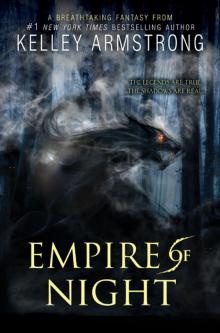 Empire of Night
Empire of Night Wild Justice
Wild Justice Double Play
Double Play Alone in the Wild
Alone in the Wild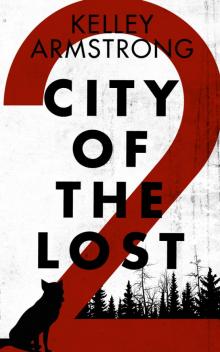 City of the Lost: Part Two
City of the Lost: Part Two A Stranger in Town
A Stranger in Town Watcher in the Woods: A Rockton Novel
Watcher in the Woods: A Rockton Novel Atoning
Atoning Spellbound
Spellbound Wolf's Bane
Wolf's Bane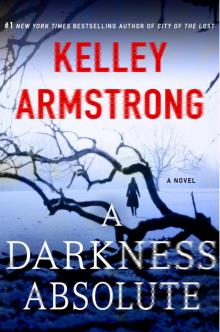 A Darkness Absolute
A Darkness Absolute Ballgowns & Butterflies: A Stitch in Time Holiday Novella
Ballgowns & Butterflies: A Stitch in Time Holiday Novella Wherever She Goes
Wherever She Goes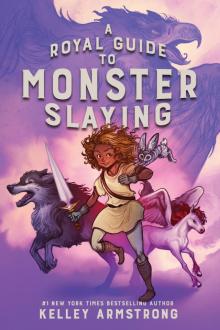 A Royal Guide to Monster Slaying
A Royal Guide to Monster Slaying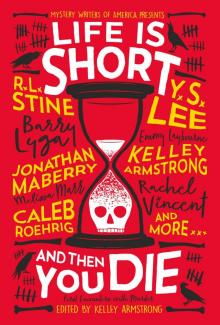 Life Is Short and Then You Die
Life Is Short and Then You Die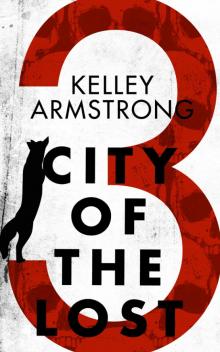 City of the Lost: Part Three
City of the Lost: Part Three Frostbitten
Frostbitten A Stitch in Time
A Stitch in Time Industrial Magic
Industrial Magic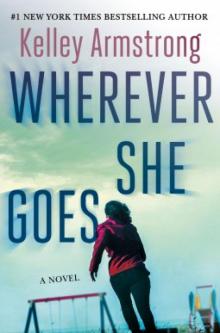 Wherever She Goes (ARC)
Wherever She Goes (ARC) Snowstorms & Sleigh Bells: A Stitch in Time holiday novella
Snowstorms & Sleigh Bells: A Stitch in Time holiday novella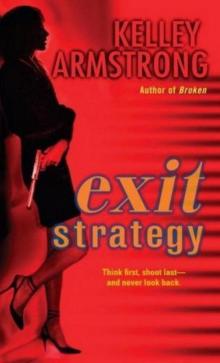 Exit Strategy
Exit Strategy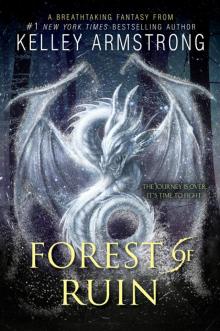 Forest of Ruin
Forest of Ruin Cursed Luck, Book 1
Cursed Luck, Book 1 The Gryphon's Lair
The Gryphon's Lair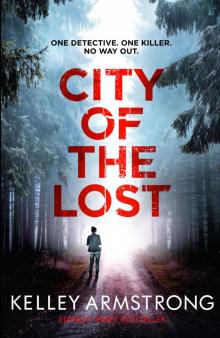 City of the Lost
City of the Lost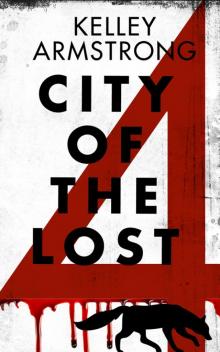 City of the Lost: Part Four
City of the Lost: Part Four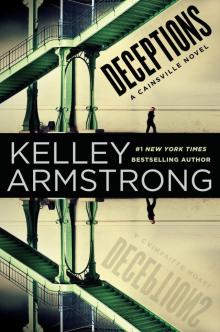 Deceptions
Deceptions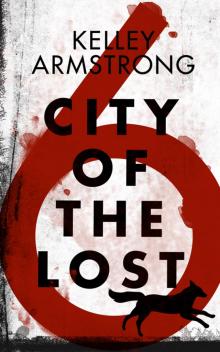 City of the Lost: Part Six
City of the Lost: Part Six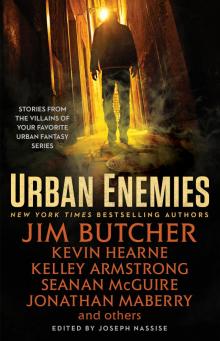 Urban Enemies
Urban Enemies Stolen
Stolen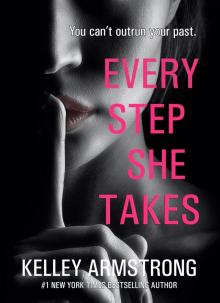 Every Step She Takes
Every Step She Takes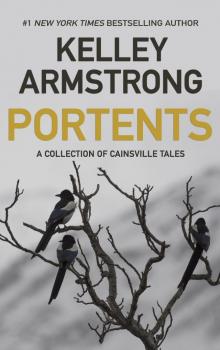 Portents
Portents Wolf's Curse
Wolf's Curse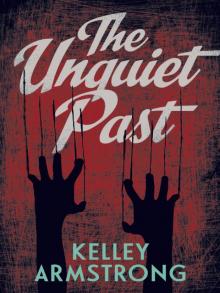 The Unquiet past
The Unquiet past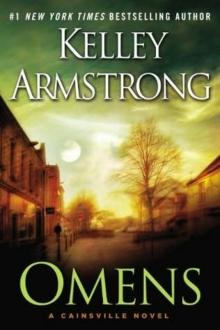 Omens ct-1
Omens ct-1 Cruel Fate
Cruel Fate The Calling dr-2
The Calling dr-2 The Awakening dp-2
The Awakening dp-2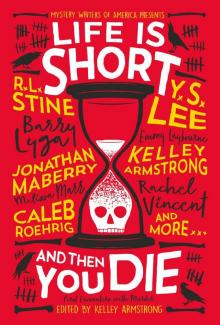 Life Is Short and Then You Die_First Encounters With Murder From Mystery Writers of America
Life Is Short and Then You Die_First Encounters With Murder From Mystery Writers of America Goddess of Summer Love: a Cursed Luck novella
Goddess of Summer Love: a Cursed Luck novella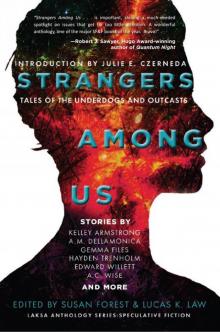 Strangers Among Us
Strangers Among Us The Gathering dr-1
The Gathering dr-1 The Rising dr-3
The Rising dr-3 The Summoning dp-1
The Summoning dp-1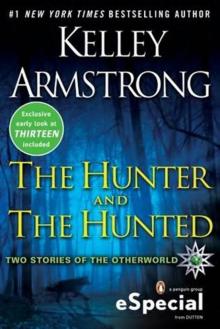 The Hunter And The Hunted
The Hunter And The Hunted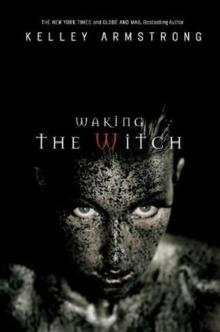 Waking the Witch woto-11
Waking the Witch woto-11